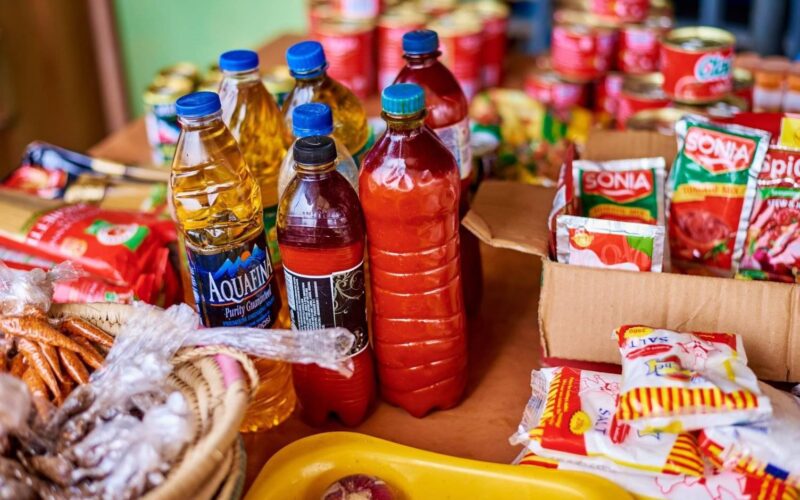There is no end in sight to food price increase as Nigeria continues to suffer a major rise in import duty which is now N1,444.56/$.
This will inadvertently affect imported food and agricultural products, reports The ICIR.
In the past few weeks, there has been a series of protests in different parts of the country, triggered largely by the high cost of living and uncontrollable surge in food prices.
Nigeria is largely an import-dependent country with much of its agricultural products and raw materials for food and beverages majorly imported.
Already, the Association of Master Bakers and Caterers of Nigeria (AMBCN) has said it would commence a nationwide strike from February 27, citing concerns over the rise in prices of baking materials, sugar, yeast, and vegetable oil.
“The increase in commodity prices will continue for the average man. No respite for a drop in food prices. The other issue is that exchange rate depreciation is feeding into food inflation and commodity price rise. That is a twin problem, ” said a development economist, Dumebi Oluwole.
“There is high food inflation and the influx of cash in circulation as a result of poorly regulated cash inflow into the economy. The CBN may need to issue open market operations more to mop up cash. Above all, there should be consolidation of fiscal and monetary policy by economic managers in the country,” she added.
What NBS Foreign Trade Statistics report says
Data from the National Bureau of Statistics (NBS) revealed that total imports of agricultural goods in the third quarter (Q3) of 2023 stood at ₦643.68 billion or 7.61 cents of total imports.
This is an increase of 41.51 per cent when compared to the value recorded in the second quarter of the same year (₦454.85 billion) and by 25.50 per cent when compared to the value recorded in Q3 2022 (₦512.91 billion).
The major agriculture goods imported in the third quarter of 2023 included ‘Durum wheat (not in seeds)’ from Poland with ₦90.46 billion and Canada with ₦73.03 billion. This was followed by ‘Mackerel (Scomber scombrus, Scomber australasicus, Scomber japonicus) meat, frozen.’ from the Faroe Islands valued at ₦16.35 billion.
Industry analysts say prices of largely imported food and even home-grown food would not drop due to naira devaluation and exchange rate volatility triggered by weak exports of Nigerian exportable products.
What rise in Customs duty mean for the food price surge
For some economic analysts, the continuous increment in duty exchange rate is causing problems for businesses.
“This is not a good development for businesses, especially now we are having currency problems and commodity price surge,” Dumebi said.
This development would trigger a further rise in food prices, as for the fourth time in one month, the benchmark foreign exchange rate for computing import duties has been raised to N1,444.56/$.
The rate was adjusted on February 2 to N1,356.883/$ and reviewed to N1,413.62/$ last Friday, February 3.
According to information obtained from the official website of the Nigeria Customs Service, the latest upward review of the duty exchange rate represents a 1.9 per cent change, which is below the official CBN exchange rate of N1,481.982/$ as of February 12, 2024.
“Currency depreciation is already a major headache to businesses, and we expect initiatives and policies geared towards trade facilitation and economic growth. We must be able to enjoin the CBN to review the rate of these import duties to support businesses and facilitate trade,” Former Director-General of the Lagos Chamber of Commerce and Industry, Muda Yusuf, told The ICIR.




